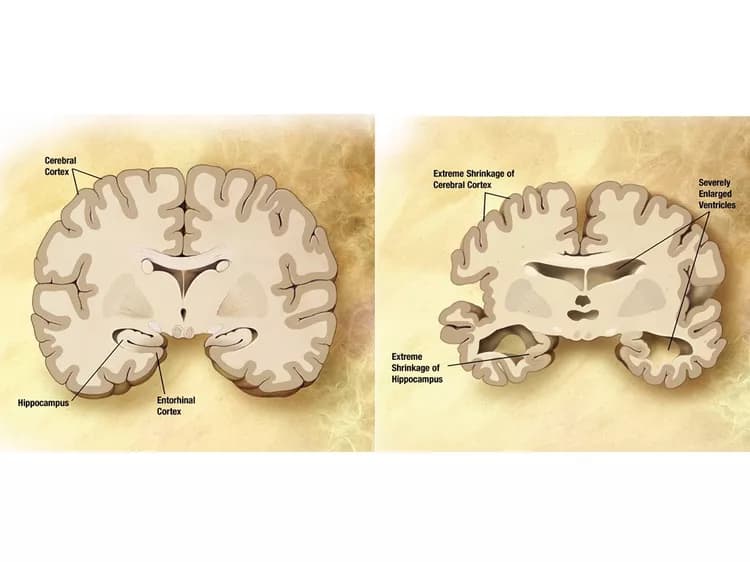Activity-dependent neuroprotective protein (ADNP), essential for brain formation, is frequently mutated in children on the autism spectrum. In older men and women, ADNP expression in the blood is correlated with cognition and further altered in Alzheimer's disease. While the three-to-one ratio of autism in boys to girls is well known, as is the greater number of female Alzheimer's patients than male Alzheimer's patients, the reasons for these phenomena -- and the theory that men and women may have different brain constitutions -- remain in hot dispute.
New research from Tel Aviv University highlights the neuroprotective potential of SKIP, a four-amino-acid peptide ADNP-replacement therapy developed at the university, and the marked difference in the nerve cell communication in male and female mice. If researchers come to understand how ADNP -- an activity-related neuroprotective protein that is a major regulatory gene -- acts differently in males and females, drugs for potential therapeutics can be optimized to treat both autism and Alzheimer's disease.
The research was led by Prof. Illana Gozes, the incumbent of the Lily and Avraham Gildor Chair for the Investigation of Growth Factors, Head of the Elton Laboratory for Molecular Neuroendocrinology at TAU's Sackler Faculty of Medicine and a member of TAU's Adams Super Center for Brain Studies and the Sagol School of Neuroscience. It was recently published inMolecular Psychiatry.
The difference between men and women?
"We found a clear difference in ADNP's effect on male and female mice," Prof. Gozes said. "The movement of transported material through nerve cells in the brains of the tested mice was slower in males. This information is critical, because it can be used to design more efficient and successful clinical trials for neurological drug candidates, and hopefully develop precise therapies for ADNP-related diseases or conditions with special attention to gender differences."
Prof. Gozes and her team examined the behavioral response of ADNP-deficient and normal male and female mice to different cognitive challenges and social situations. They worked with the Bioinformatics Unit, the NMR Laboratory, the Alfredo Federico Strauss Center for Computational Neuroimaging and Genomic Centers at TAU and the Technion -- Institute of Technology to harness state-of-the-art technology that led to the new understanding of molecular mechanisms underlying differences in the male and female mouse brain.
Prof. Gozes has been instrumental in drawing attention to the proteins that bind microtubules -- tubes within nerve cells that maintain cellular shape and serve as "train tracks" for movement of biological material through the brain. In this study, Prof. Gozes and her team observed mice in which SKIP was introduced and witnessed accelerated microtubular function in both males and females, using MRI imaging. The pace of neural transport in mice that inhaled magnesium was found to be significantly slower in males.
"The loss of protective proteins exposes cells to physical damage that eventually destroys them," said Prof. Gozes, whose previous research on NAP, a snippet of ADNP, has been proven in multiple studies to protect cognitive functioning. "The new protein-protectant drug candidate SKIP, which is half the size of NAP, was found to increase and repair blocked nerve-cell transport and normalize it."
Social behaviors
Male and female reactions were different in social situations, too. "SKIP was found to normalize mouse reactions in social situations," said Prof. Gozes. "Normal male and female mice behaved very differently: Females were infrequently drawn toward new mice, whereas males were more frequently drawn to new mice. ADNP-deficient male and female mice both preferred the company of familiar mice. After SKIP was introduced, by intranasal administration, we saw that the female and male mice behaved like the ADNP-intact mice.
"When clinicians treat patients, they must look at gender," Prof. Gozes concluded. "There may be a gender difference in the way certain nerves behave and the way the nerve cells communicate. ADNP is involved in this process. There are differences between the way men and women react to their environments, and differences at the molecular level may indicate that indeed there are differences between the very way men and women think."
SKIP (Prof. Gozes, PI) was licensed by Tel Aviv University's technology-transfer company, Ramot, to Coronis Partners Ltd., a specialty pharma company that is currently conducting a financing round for its clinical development.
The above post is reprinted from materials provided by American Friends of Tel Aviv University. Note: Materials may be edited for content and length.
Disclaimer: DoveMed is not responsible for the adapted accuracy of news releases posted to DoveMed by contributing universities and institutions.
Primary Resource:
Amram, N., Hacohen-Kleiman, G., Sragovich, S., Malishkevich, A., Katz, J., Touloumi, O., ... & Pasmanik-Chor, M. (2016). Sexual divergence in microtubule function: the novel intranasal microtubule targeting SKIP normalizes axonal transport and enhances memory. Molecular psychiatry.
Related Articles
Test Your Knowledge
Asked by users
Related Centers
Related Specialties
Related Physicians
Related Procedures
Related Resources
Join DoveHubs
and connect with fellow professionals


0 Comments
Please log in to post a comment.